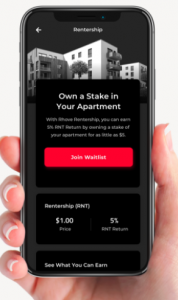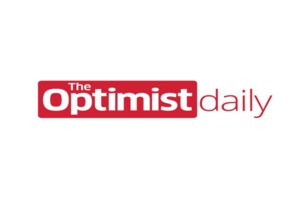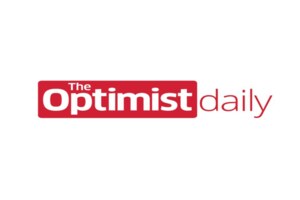“There’s no problem that I think is worth solving more than this one at this moment in our country and the concept is really that every renter should be an owner and it should be as easy as the click of a button.” – Calvin Cooper
20 years ago, buying a first home was a benchmark moment for most young professionals, but if you ask the majority of under-30s today, buying a house is not in the foreseeable future.
As Calvin Cooper approached his 30th birthday, he began to do the math around owning a home and realized that for many other millennials like himself, there needed to be a better path to home equity. This is what prompted him to cofound Rhove, a company that lets renters become stakeholders in their properties.
Rhove began with an initial cash back program where renters in participating buildings across Columbus, Ohio would get 2.5 percent back on their rent to amplify their personal savings. The immense popularity of the program, combined with impending housing challenges due to the pandemic, encouraged Rhove to launch their second program, Rentership, as soon as possible.
Revolutionizing Rentership

So why is this a transformative benefit for renters? The average American will spend $200,000 on rent in their lifetime with no equity to show for it. Rhove combines the best aspects of renting: the flexibility, low barriers of entry, and high level amenities, with the financial benefits of ownership. It’s the best of both worlds.
Having a financial stake in where you live offers much more than housing security. “As we know ownership is more than a financial matter, it’s about citizenship, it’s about social responsibility, and building communities,” said Cooper.
The importance of community connection plays a central role in Rhove. Gravity, the inaugural apartment complex that launched the Rentership program identifies itself as a center of “conscious living.”
Brett Kaufman, owner of Gravity and cofounder of Rhove, developed the building on the pillars of expression, impact, and wellbeing. He was seeking to create the holistic community he had yet to find in many parts of the midwest.
“Gravity really is based on the idea of elevating the human experience, building conscious communities, really allowing people to have a place where they can be fully expressed, make an impact in their community and in the world and really focus on their overall wellbeing,” says Kaufman.
Building capital and community
There is no single barrier to home ownership for younger Americans. High student debt, incomes which have remained flat relative to inflation, and high down payments all play a role in getting stuck in the rent cycle. Given that most Americans in urban areas pay 30-50 percent of their monthly income in rent, saving up for that first home just isn’t feasible. The share of new homeowners under age 30 declined from 29 percent in 2001 to about 15 percent in 2015 (the last year this data is available).
Rhove’s Rentership program is great for families looking to build capital that might eventually allow them to purchase their own home, but Rhove’s innovative approach is also ushering in a whole new age of housing. This is a new category of renting and one that could be convenient and financially rewarding even for those who never want to own their own home. Home ownership comes with high maintenance costs, limited mobility, and on top of that, two thirds of millennials report they later regret their purchase according to a poll from Bankrate.

The response from renters has been overwhelmingly positive. Gravity’s tenants enjoy a meditation center, exercise classes, mental health services, art, music, and creative outlets. They’re able to integrate their work lives with their passions and their families all in one space.
Kaufman explained, “I wanted to build a company, an organization, that really allowed people to integrate the things they were passionate about into their work and the focus of our work would be building communities where we allowed people to have easy access to the things they were passionate about. That was always the reason behind Kaufman Development. Gravity is really our latest, fullest expression of what that looks like.”
In addition to improved living conditions, Rhove’s renters are also reaping the security of financial stability. Cooper points out that most Americans do not have the savings base to afford an unexpected emergency. Rhove’s cushion provides them with this.
The company has already seen the benefits of their cash back program play out during the pandemic. The team moved quickly to ensure renters had access to their capital amidst the uncertainties of the virus. The company instituted a same day withdrawal mechanism within a few days of lockdown so everyone could pull their funds out if they needed to. Whether due to job loss, illness, or need for peace of mind, Rhove renters have utilized their savings for security in the face of a disaster nobody could have predicted.
The Optimist Daily has been focused on stories that offer “Back to Better” solutions during the pandemic. We believe this massive “pause” offers a chance to reimagine a post-Covid world that doesn’t just return to the way things were, but rather to pick and choose from many more just and sustainable possibilities to create a world that works better for more of us. Rhove is offering a glimpse of what the future of housing might look like.

During lockdown, Cooper and his partners launched Rentership as soon as they could. They recognized that the biggest contribution they could make personally was a tool for renters to feel financially empowered. They wanted to ensure the average American could reap the benefits of the post-pandemic economic recovery rather than continue to pay exorbitant rent costs while a select few profited off their funds.
Speaking to Cooper and Kaufman, my biggest question was, “So when are you expanding to California?” As a young professional, Rhove offers everything I and my friends are looking for in terms of creating financially viable futures without limiting our options or sacrificing our sense of community and purpose.
Fortunately, Rhove is expanding. While serving Columbus is priority number one, they are looking to expand to other markets. Kaufman has also broken ground on a second phase of Gravity, including 250 more apartments, 180,000 square feet of office space, and a co-living opportunity.
Cooper says, “Our vision is that every single renter is going to be an owner so we’re going to move as quickly as possible to make that happen everywhere. And we’re getting incredible responses, the light and love coming in from all around the world is incredible.”
About the Author:
 Amelia Buckley is a staff writer for the Optimist Daily and recent graduate of the University of California, Santa Barbara. As a global studies major and lover of the outdoors, Amelia is passionate about crafting stories that focus on critical global issues that impact our environment and natural spaces.
Amelia Buckley is a staff writer for the Optimist Daily and recent graduate of the University of California, Santa Barbara. As a global studies major and lover of the outdoors, Amelia is passionate about crafting stories that focus on critical global issues that impact our environment and natural spaces.












